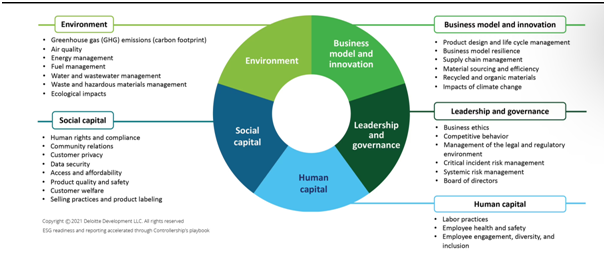The rise of the ESG regulations
Context: since the last few years regulators and corporations around the world have embraced the idea that businesses should be measured not just on traditional economic metrics such as shareholder return, but also by their environmental impact, commitment to social issues and the soundness of their corporate governance and protection of shareholder rights, the main driver of such change is the realisation that environmental, social and governance (“ESG”) considerations need to be included by investors in a company’s risk profile in order to accurately assess the enterprise.
The development of ESG laws and regulations is,nonetheless, still at a nascent stage in India, where the focus is often on providing protections regarding the environment or workplace conditions without also incorporating the controls and disclosure that are a hallmark of contemporary ESG regulation.
ESG and CSR
- India has a robust corporate social responsibility (CSR) policy that mandates that corporations engage in initiatives that contribute to the welfare of society.
- This mandate was codified into law with the passage of the 2014 and 2021 amendments to the Companies Act of 2013.
- The amendments require companies with a net worth of ₹500 crore or a minimum turnover of ₹1,000 crore or a net profit of ₹5 crore in any given financial year spend at least 2% of their net profit over the preceding three years on CSR activities.
- The list of qualifying CSR activities is intentionally broad, ranging from supporting the protection of historically important sites to promoting safe drinking water.
- ESG regulations, on the other side, differ in process and impact. The U.K. Modern Slavery Act, for example, requires companies with business in the U.K. and with annual sales of more than £36 million to publish
- The efforts they have taken to identify and analyse the risks of human trafficking, child labour and debt bondage in their supply chain;
- Establish internal accountability procedures; evaluate supplier compliance and to train supply chain managers regarding these issues.
Why is ESG relevant in India?
- India has long had a number of laws and bodies regarding environmental, social and governance issues, including the Environment Protection Act of 1986, quasi-judicial organisations such as the National Green Tribunal, a range of labour codes and laws governing employee engagement and corporate governance practices. The penalty for violations can be substantial.
- While these laws and bodies provide important environmental and social safeguards, new initiatives in India go further, establishing guidelines that emphasise monitoring, quantification and disclosure, akin to ESG requirements found in other parts of the world.
- The Securities and Exchange Board of India (SEBI), responding to the increase in ESG investing and the demand by investors for information on ESG risks, substantially revised the annual Business Responsibility and Sustainability Report (BRSR) required by the 1,000 largest listed companies in India.
- SEBI describes the current report format as a “notable departure” from previous disclosure requirements, which are aligned with evolving global standards and place “considerable emphasis on quantifiable metrics” to allow companies to engage meaningfully with stakeholders and to enhance investor decision making.
- Disclosures range from greenhouse gas emissions to the company’s gender and social diversity.
- Additionally legislation regarding ESG are likely, given the increased emphasis by the Indian government on ESG issues, which can be seen in India’s more active role in global climate forums as well as in specific policy developments, such as the announcement in January by the Reserve Bank of India that it would be auctioning ₹80 billion ($981 million) in green bonds.
Implications for Indian companies?
- Compliance with ESG regulations — both originating in India and elsewhere around the world — thus, pose a significantly different challenge than India’s CSR regulations.
- In particular, compliance by Indian companies with the ESG regulations of the U.S., the U.K., the European Union and elsewhere will be critical if India is to take full advantage of the growing decoupling from China and play a more prominent role in global supply chains and the global marketplace overall.
- As Indian companies look to expand their ESG risk management, thorough due diligence will play a key role.
- However, this requires more than having sub-suppliers fill out a questionnaire. Due diligence that can stand up to scrutiny means going deeper.
- Depending on the situation, this can include looking at company records, interviewing former employees and making discreet visits to observe operations to ensure that the measures to comply with international ESG standards are in effect.
- Companies that wish to maximise their opportunities in the global economy need to embrace these new requirements and adjust their organisations accordingly.
| Practice Question
1. Explain the relevance of ESG regulation in India along with CSR? |




